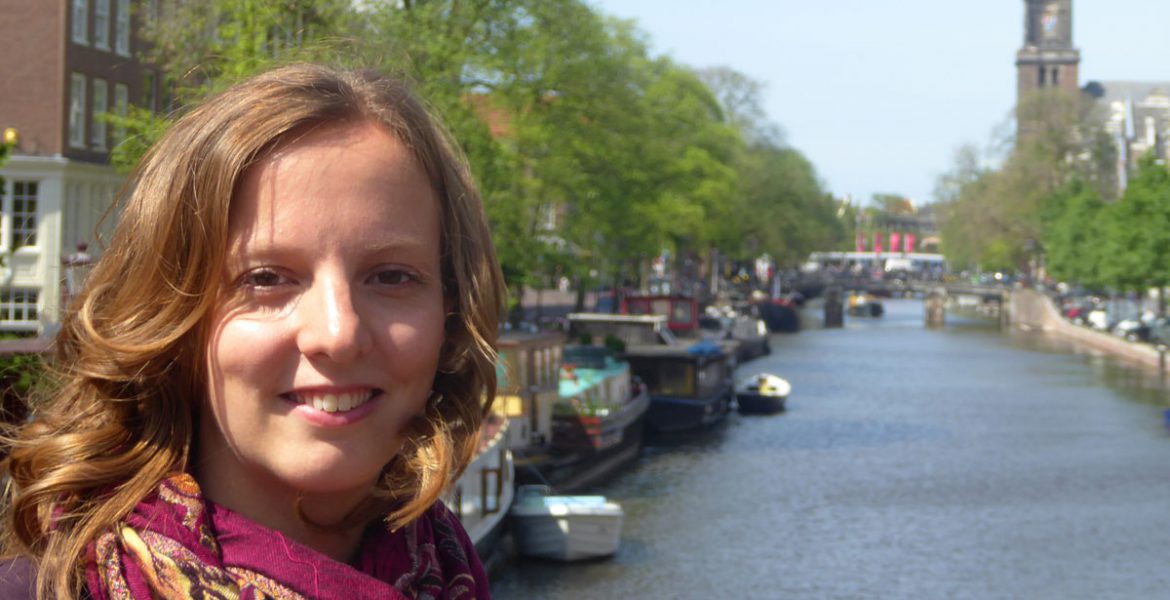Therapist Nadine Blankvoort pursues international projects
Nadine Blankvoort [BA/09, MOT/11] always knew she wanted to work with people, ideally in the field of health and wellness.
She has certainly succeeded and her work has taken her to India, the Netherlands and many other international destinations.
But it all started in the U of M’s occupational therapy department in the College of Rehabilitation Sciences. Occupational therapy focuses on the activities people engage in during their daily lives, be it work, family or recreation, and helps people find ways to overcome barriers they might face while engaging in these activities.
“The creativity and client-centred approach within the profession convinced me that this was a career you could do for a lifetime, and in that time engage in entirely different work fields with people from different walks of life,” Blankvoort says.
A placement at Winnipeg’s Siloam Mission in the final year of her program gave Blankvoort the chance to see first-hand the role occupational therapy can play in the community, particularly with individuals living on the margins of society – an experience she still draws on in her work today.
“The creativity and client-centred approach within the profession convinced me that this was a career you could do for a lifetime.”
In 2012, Blankvoort moved to the Netherlands to pursue her master’s degree in global health and had the opportunity to complete research with stroke survivors in Surabaya, Indonesia. She also worked as the project coordinator for Health in Slums, a program in Bangalore, India that worked with local women to improve practices of indoor cooking.
The daughter of Dutch immigrants to Canada, Blankvoort, 29, maintains a busy schedule and wears several hats in a professional capacity in the Netherlands. She is the coordinator for internationalization and a teacher in the School of Occupational Therapy at the Amsterdam University of Applied Sciences. She is also an instructor at Maastricht University in the master of global health program.
Blankvoort’s current research focuses on the experience of refugees and asylum seekers in the Netherlands. The last few years have seen a large influx of refugees there, as in many European countries.
Refugees in the Netherlands often spend their first months or years in large-scale refugee centres where they are unable to work, study or join society. Several alternative initiatives have been started to help integrate refugees more efficiently, allowing them more control over their daily lives.
“My research aims to explore the stories of the refugees who are living in these alternative initiatives,” Blankvoort says. “What is their experience, what are their opportunities to engage in meaningful activities, and what does this mean for their own identity and their feelings of being included in society in the Netherlands?”
Blankvoort points to many professors in the U of M College of Rehabilitation Sciences who encouraged the critical thinking that helped her see how vast the opportunities for occupational therapy could be.
“The mentors I had at the U of M are also now role models for me in regards to teaching, which I draw on daily in my role as an educator in Amsterdam,” she says. “They still are always open to help and provide guidance that I need.”

